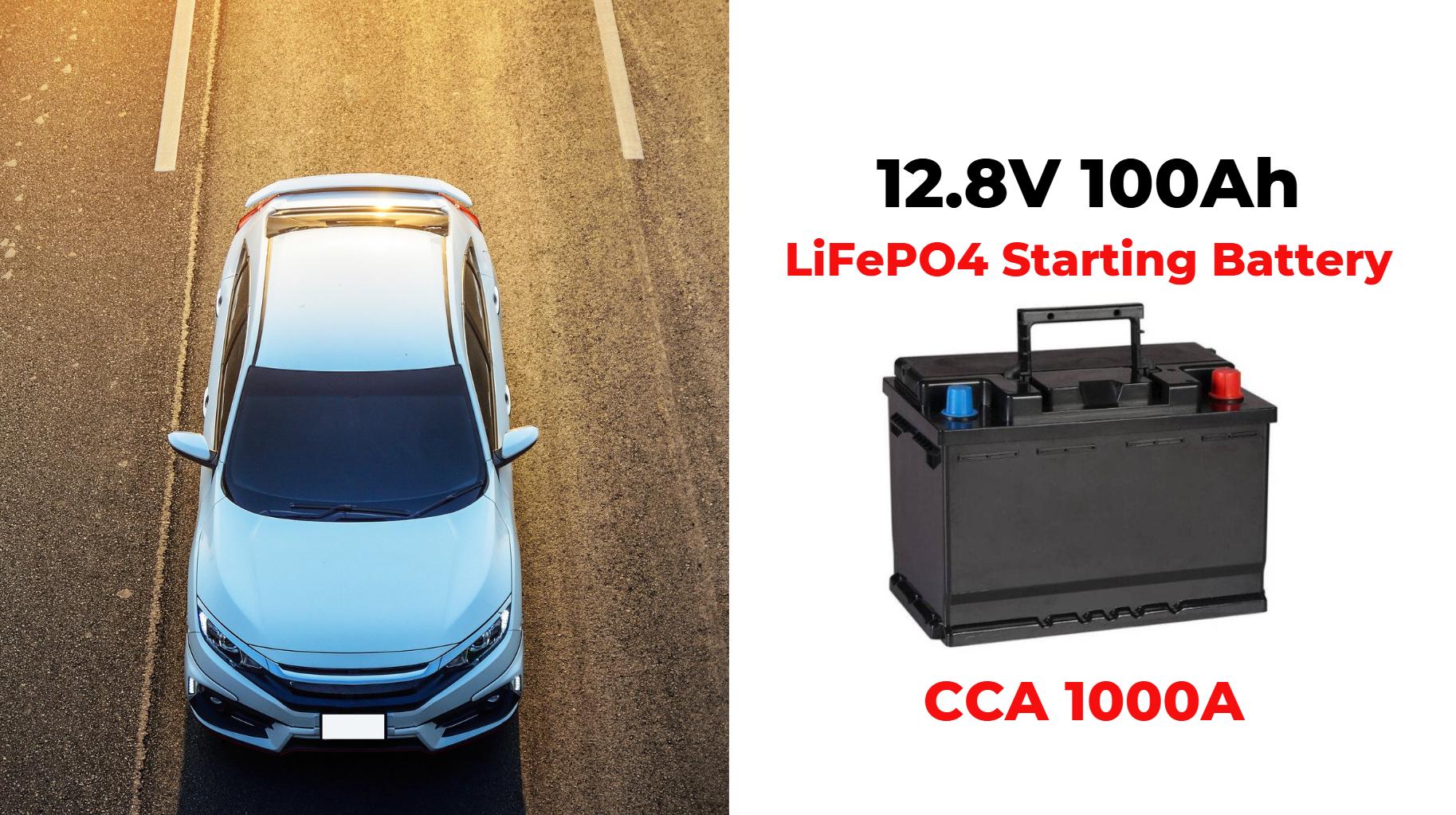
How to Choose the Best 100Ah LiFePO4 Battery for Your Needs
Choosing the right 100Ah LiFePO4 battery is crucial for ensuring optimal performance in various applications, from RVs to solar energy systems. These batteries offer numerous benefits, including longer lifespan, safety, and efficiency, making them a preferred choice over traditional lead-acid batteries.
How do 100Ah LiFePO4 batteries work?
100Ah LiFePO4 batteries operate on lithium iron phosphate chemistry, which allows them to store and release energy efficiently. They provide a nominal voltage of 12.8V and can deliver consistent power output with minimal voltage drop during discharge. This makes them ideal for applications requiring stable energy supply, such as solar power systems and recreational vehicles.Chart: Energy Storage Characteristics
| Parameter | Value |
|---|---|
| Nominal Voltage | 12.8V |
| Capacity | 100Ah |
| Cycle Life | Up to 15,000 cycles |
| Discharge Rate | Up to 100A |
What are the advantages of using a 100Ah LiFePO4 battery?
LiFePO4 batteries come with several significant advantages:
- Long Lifespan: They can last between 4000 to 15,000 cycles, depending on usage.
- Safety: They have a lower risk of thermal runaway compared to other lithium-ion batteries.
- Lightweight: Typically weigh about one-third of traditional lead-acid batteries.
- High Efficiency: Offer up to 95% efficiency, meaning less energy is wasted during charging and discharging.
Why should you consider the price when choosing a battery?
Price is an important factor when selecting a 100Ah LiFePO4 battery because it often reflects quality and features. While cheaper models may seem attractive, they might lack essential safety features or durability. Investing in a reputable brand can save money in the long run due to fewer replacements and better performance.Chart: Price Comparison of Popular Brands
| Brand | Price | Cycle Life | Warranty |
|---|---|---|---|
| Renogy | $559 | 4000 cycles | 10 years |
| Battle Born | $720 | 3000 cycles | 10 years |
| Weize | $229 | 2000 cycles | 2 years |
| LiTime | $319 | 4000 cycles | 5 years |
How does battery management system (BMS) affect performance?
A Battery Management System (BMS) is crucial for monitoring the health and performance of lithium batteries. It protects against overcharging, deep discharging, and temperature extremes, ensuring safe operation. A good BMS can also provide real-time data on voltage levels, current flow, and overall battery health.
What are the best applications for a 100Ah LiFePO4 battery?
The versatility of 100Ah LiFePO4 batteries makes them suitable for various applications:
- Solar Energy Systems: Ideal for storing energy generated from solar panels.
- Recreational Vehicles (RVs): Provides reliable power for appliances during trips.
- Marine Applications: Lightweight and efficient for powering boats.
- Off-grid Living: Suitable for tiny homes or cabins that require independent power sources.
How do you maintain and store your LiFePO4 battery effectively?
To maximize the lifespan of your LiFePO4 battery, follow these maintenance tips:
- Regular Monitoring: Check voltage levels periodically using a multimeter.
- Proper Charging Practices: Use chargers specifically designed for lithium batteries.
- Storage Conditions: Store in a cool, dry place away from direct sunlight; ideally at around 50% charge if not in use.
What do customer reviews say about popular 100Ah LiFePO4 batteries?
Customer feedback often highlights several key points regarding 100Ah LiFePO4 batteries:
- Many users appreciate their lightweight design and longevity compared to traditional batteries.
- Reviews frequently mention the importance of having a reliable BMS for safety.
- Some customers express concerns about cheaper models lacking adequate low-temperature protection.
What are the latest trends in LiFePO4 battery technology?
Recent advancements in LiFePO4 technology include:
- Smart BMS Integration: Many new models come with Bluetooth connectivity for easy monitoring via smartphone apps.
- Improved Energy Density: Innovations allow for more energy storage without increasing size.
- Sustainable Manufacturing Practices: Companies are increasingly focusing on eco-friendly production methods.
Latest News
The market for lithium iron phosphate (LiFePO4) batteries is expanding rapidly as demand grows in sectors like renewable energy and electric vehicles. Recent reports indicate that innovations in battery management systems are enhancing safety features, while prices remain competitive due to increased manufacturing capabilities.
Editor Comment
“The evolution of lithium iron phosphate technology marks a significant step forward in energy storage solutions,” noted an industry expert. “With their combination of safety, efficiency, and longevity, these batteries are poised to become the standard in various applications.”
FAQ Section
Q1: How long do 100Ah LiFePO4 batteries last?
A1: These batteries typically last between 4000 to 15,000 cycles, depending on usage conditions.Q2: Can I use a cheaper brand of LiFePO4 battery?
A2: While cheaper brands may be tempting, they often lack essential features like effective BMS or temperature protection.Q3: Are there any special storage requirements for these batteries?
A3: Yes, they should be stored in a cool, dry place at around 50% charge if not used regularly.
